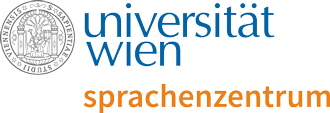It is widely recognised that English is a requirement in the business world. If you’re in international business, and you don’t know your marketing mix from your negotiation strategy, you probably won’t be in international business for long.
But why should business and economics hold a monopoly on English at university level?
What about law, or medicine, or politics, or engineering, or architecture, or art? Doesn’t an international career in these professions require a good level of subject-specific English? If you are considering a career as a fashion designer, then you need to know how to communicate internationally about textiles, designs and production techniques. If you are more interested in marine biology, then perhaps divergent plate boundaries, epiforna and algal bloom are more your kind of thing.
English is, and will continue to be, an important professional lingua franca for international communication. Being a competent English speaker in your field of study will give you the edge both in your studies and when competing on the global job market. Indeed, according to Biria and Tahririan (1994), “success in graduate studies greatly depends on how well students are able to read their textbooks in English. That is, English for Specific Purposes (ESP) plays a significant role at the tertiary level of education where students need to use their English for furthering their academic studies”. I believe that this is as relevant today than it was 23(!!) years ago.
How to improve your ESP skills
We all know that watching endless seasons of ‘Game of Thrones’ or ‘Dr House’ is going to help you improve your general English. But how can you improve your English for Specific Purposes (ESP)
Here are a few tips for getting your career-oriented ESP up to standard:
- Reading widely on your subject in English. Reading more English-language academic books and journals, industry magazines, and internet sites is a great start. Not only will you improve your general and specific English skills, but this form of ‘content-language integrated learning’ (CLIL) will help you expand your subject knowledge, which might come in handy for that final ‘Diplomprüfung’.
- YouTube and online video documentaries. There are millions of hours of interesting video material freely available online, covering every subject under the sun (plus several more millions of hours of complete rubbish). From academic conference presentations, to professional documentaries, to some guy sitting in his living room putting the world to rights, there is so much potential ESP material at your fingertips.
- The University Sprachenzentrum has a growing catalogue of ESP courses. From March 2017, we’ll be starting our career-orientation language programme ‘A Career In…’. Starting with ‘A Career in Government and Public Policy’ and ‘A Career in the NGO Sector’, these 30-unit courses will look at some of the key vocabulary, expressions, themes and relevant communication skills to help kick-start your career in these fields.
The University Sprachenzentrum is currently the only institution offering such programmes, and we look forward to developing these further with the help of highly-trained ESP lecturers and subject experts.
If you have ideas for other ESP courses, - perhaps you and your study colleagues are looking for a specific English programme to help you with your academic and career plans – then get in touch with us, and perhaps we can help you put a course together. (Courses require a minimum of 8 participants).
In the meantime, take a look at all of our current ESP programmes at: sprachenzentrum.univie.ac.at/fremdsprachenkurse/english-for-specific-purposes/
Author:
Paul Talbot – ESP Trainer
Words and phrases from this blog:
chances are: it is very likely (that…)
to be in (international business): to work in (a certain professional field)
to hold a monopoly: to be the only person, or organisation, or institution, to have something
your kind of thing: something that interests you
to give you the edge: give you an advantage
to get up to standard: to improve and to reach a required level
to come in handy: to be useful
(everything) under the sun: absolutely everything
to put the world to rights: to discuss how the world or society should be changed or improved
at your fingertips: available and accessible to you immediately
to kick-start something: to help something start or develop more quickly



